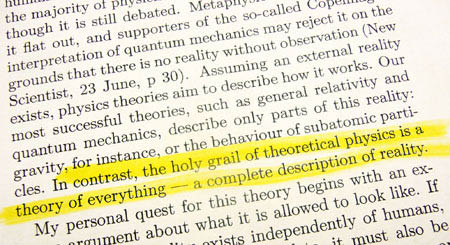1. Mother Nature – a gross misrepresentation of agency. At least be prepared to blame God, but better yet, blame the broken world we live in thanks to sin. See here.
2. Grave fears – seems insensitive in the extreme. How about “serious fears” or just “we fear for their lives”…
3. Inundated – seriously. I heard a lady who had miraculously survived a torrent but who had been cut by barbed wire say her legs had been “inundated” with scratches.
4. Essential items – when talking about bread, milk, and toilet paper).
5. Road closed – especially when it comes to people who have been stupid enough to drive through flooded causeways
6. “Channel Seven” – Ben was onto something when he suggested Channel Seven’s coverage seems to be more about self promoting than flood coverage. You don’t have to throw the words “Channel Seven” in front of any noun to indicate possession. Try “our”… or don’t talk about the thing you’re flying in at all. Mention your reporter by name. Humanise yourselves.
7. Rubbernecking – it’s an ok word when it’s original, but it becomes hackneyed very quickly.
8. We are “____” – insert parochial catchcry here – but “Queenslander” is particularly abhorrent. Anna Bligh’s “Remember who we are, we’re Queenslanders” represents most of the things that are wrong with our state. Least of all, because it works.
9. Anything Julia Gillard says – she talks like a robot version of Kath and Kim. Emotionless strine. If Anna Bligh can run rings around you then you’re in big trouble.
10. Inland tsunami/wall of water.
Some flood related puns/cliches for good measure:
1. Anything Noah related – any jokes about pairs of animals or building an ark.
2. “uncharted waters”
3. A new watermark.
4. “pooling our resources”
5. “swamped”
6. “fatal flood” – alliterative, but unoriginal. Headline writers have been using it since the early chapters of Genesis.
7. “burst its banks”
8. Any personification or application of agency to a stream of water that is actually simply taking the path of least resistance from one place to another.
9. Describing flood losses as “down the drain” or “down the gurgler”
10. Descriptions of flood damaged locales as “ground zero” or a “war zone”
The “Sainted Krishna” prize for “Mixed Spiritual Metaphor” goes to Anna Bligh for:
“I hope and pray that mother nature is leaving us alone to get on with the job of cleaning up and recovering from this event.” source: halfway down this story
